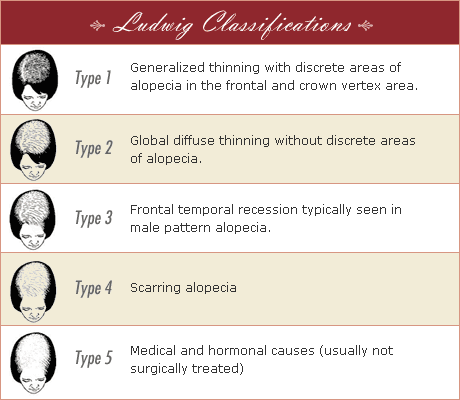First Commercial Genetic Test For Male Baldness Being Launched.
15.01.2008 in MALE HAIR LOSSAffordable, Accurate, Understandable Analysis Offered By Biotech Start-up “HairDX”
HairDX, LLC, a biotech start-up, today announced the commercial release of HairDX.com, a simple consumer-friendly test that provides an accurate and understandable genetic analysis of a man’s likelihood of developing male pattern baldness (Androgenetic Alopecia).
This simple and highly accurate test costs $149. The customer orders the test kit on the Internet, and it is shipped to his home. He swabs his mouth (inside cheek) for several seconds and returns the swab to the HairDX lab. HairDX performs a confidential and anonymous genetic analysis of his genetic variations related to pattern baldness.
Using results supported by several peer-reviewed scientific studies associating variations in the X -chromosome to pattern baldness, the test enables users to learn about their genetic predisposition to balding before the age of 40. People who have certain variations in their X-chromosome are likely (95.1% to 98.1%) to develop pattern baldness before age 40.
“Each year, men in their twenties and thirties spend millions of dollars on pharmaceuticals, topical products, and other costly treatments trying to prevent baldness. Some of this is done by males who may not go bald in the first place,” says HairDX CEO Andy Goren.
The information provided by HairDX enables the consumer to make informed decisions about what approach, if any, he should take, including discussing hair loss with a qualified physician. HairDX.com also provides a support center with access to a registered nurse.
“The most common form of hair loss, Androgenetic Alopecia, is hereditary. Looking at your father’s or grandfather’s head has been an inaccurate, nonscientific barometer. The genetic revolution will enable patients and physicians to gain deeper understanding of hair loss,” says Peter Novak, MD, PhD, a leading researcher at the University of Massachusetts Medical Center in Worcester, MA and an innovator in the field of stem cell therapies for treatment of hair loss.
HairDX’s scientific board includes Novak and notable genetics Professor Doron Lancet PhD – Head of the Crown Human Genome Center at the Weizmann Institute of Science in Israel.
HairDX is committed to confidential and private testing, with genetic analysis performed by BioServe, a leader in the processing, development, and validation of diagnostic tests for the practice of personalized, predictive and preventive medicine. Based in Beltsville, MD, BioServe is a Clinical Laboratory Improvement Amendments (CLIA) certified laboratory (the highest quality of laboratory certification).
About HairDX
HairDX was founded by leading researchers and specialists in genetic analysis and hair therapies. The company is dedicated to helping people make the right decisions about hair care, treatment and restoration by providing accurate and accessible personalized scientific information.
Among HairDX founders is William V. Murray former Division President of the Molecular Biology Division of Applied BioSystems, Inc., who formerly served in various executive leadership positions within Medtronic, Andy Goren former CEO of MobileWise, Inc. and GeePS, Inc., Eran Goren, CEO of enCircle Media, Inc., and Elliott J. Stein, an intellectual property attorney and co-founder of GeePS, Inc. HairDX, LLC is a subsidiary of myGenopedia, Inc.
More information is available at Do you have Hair Loss Problems, read our Hair Loss Help
no comment






